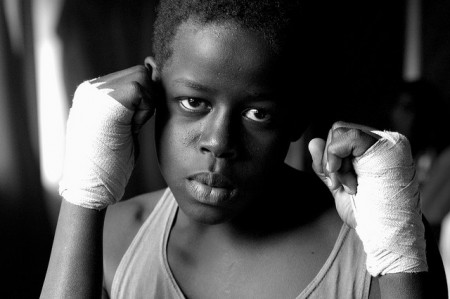
On 26 January of this year, David Kato Kisule, a prominent gay rights campaigner from the east African nation of Uganda, was beaten to death with a hammer in his house near the country’s capital of Kampala, shortly after winning a lawsuit against a magazine which had published his name and photograph identifying him as gay and calling for him to be executed.
The story goes back to October of last year, when a weekly Ugandan tabloid newspaper, the Rolling Stone (with no affiliation to the iconic American music magazine), published the names and photos of 100 suspected homosexuals next to a banner that read “hang them”, which led to those listed being singled out, threatened, attacked, and – as in the case of Kato – killed.
Kato’s funeral was held on 28 January in Nakawala. Tears flowed as family members and human rights activists wailed. A statement from President Barack Obama was read, condemning the killing and urging authorities to bring swift justice. However, the presiding Anglican pastor shocked the mourners when he called on gays to repent or else be “punished by God” and made comparisons to Sodom and Gomorrah, before the bereaved managed to grab the microphone from him. During the resulting scuffle, the onlooking villagers, refusing to bury Kato within their parish, sided with the preacher.
A police spokesperson initially blamed the murder on robbers who had allegedly killed at least 10 people in the area in the months before Kato’s death. Shortly thereafter, the Ugandan police promptly arrested Kato’s driver, only to then announce the detention of Nsubuga Enock, a “well-known thief” and local gardener, saying that he had confessed to the murder, after Kato refused to pay him as promised for sex. Neither local gay-rights groups, nor the foreign media, however, have much confidence in a force known for its homophobia.
Over the last few years, homophobia has soared throughout Africa – but especially so in Uganda. While there have been laws in Uganda forbidding homosexuality for decades, these were never enforced. It wasn’t until American evangelicals began flocking to the East African country that Ugandans began to see homosexuality as a new and dangerous development which needed to be fought. As a result, a controversial Anti-Homosexuality Bill, proposing the death penalty for homosexuals, was introduced in Parliament in 2009, only to be shelved after protracted international pressure from human rights activists and governments.
In the wake of Kato’s death, however, homophobia in Uganda has grown even stronger. Today, it is no longer just radicals who thunder against homosexuality. Religious leaders across the country have approved the brutal slaying, and a state lawmaker has now gone on to propose legislation that would make it a crime for any landlord to offer housing to a homosexual and require parents to report their homosexual children to authorities. Unbelievably, this bill actually stands a fair chance of passing through parliament once this month’s presidential elections have come to pass.
The office of President Yoweri Museveni, worried about losing votes in the elections, has remained largely silent. In Uganda, homosexuality is considered an abomination – much the same way that rape is considered in other countries. Ugandan attitudes toward homosexuality must be seen as a public plea to save deeply treasured social norms. In these times of insecurity and fear, Ugandan society is trying to find stability by holding on to misinterpreted values. And with the country’s politicians, media and intelligentsia failing in their duties, the gay community of Uganda has no choice but to either run or hide.
For further information on Lesbian, Gay, Bisexual and Transgender (LGBT) Rights around the globe, please click here to visit our Digital Library.

